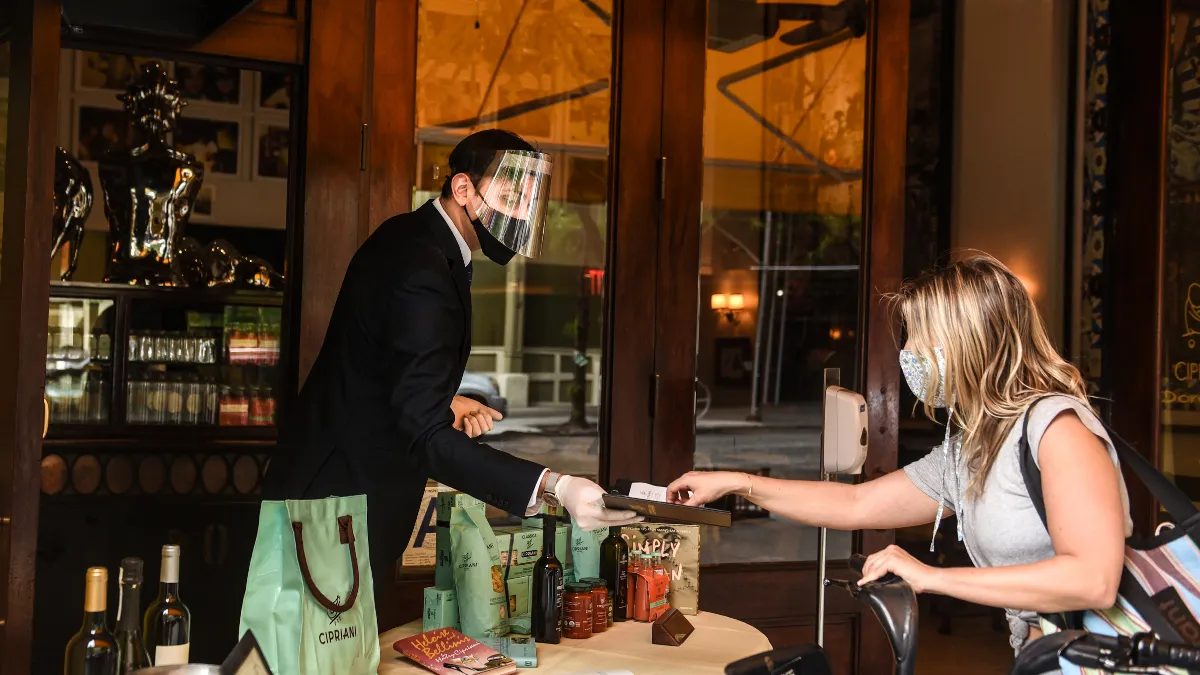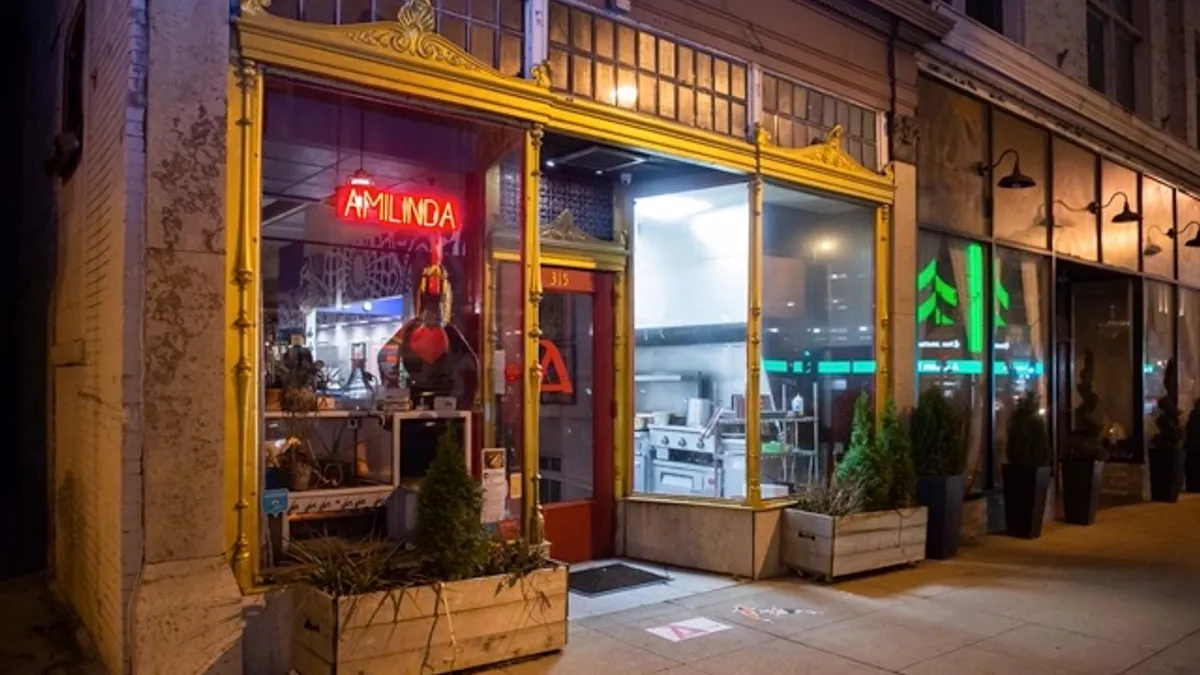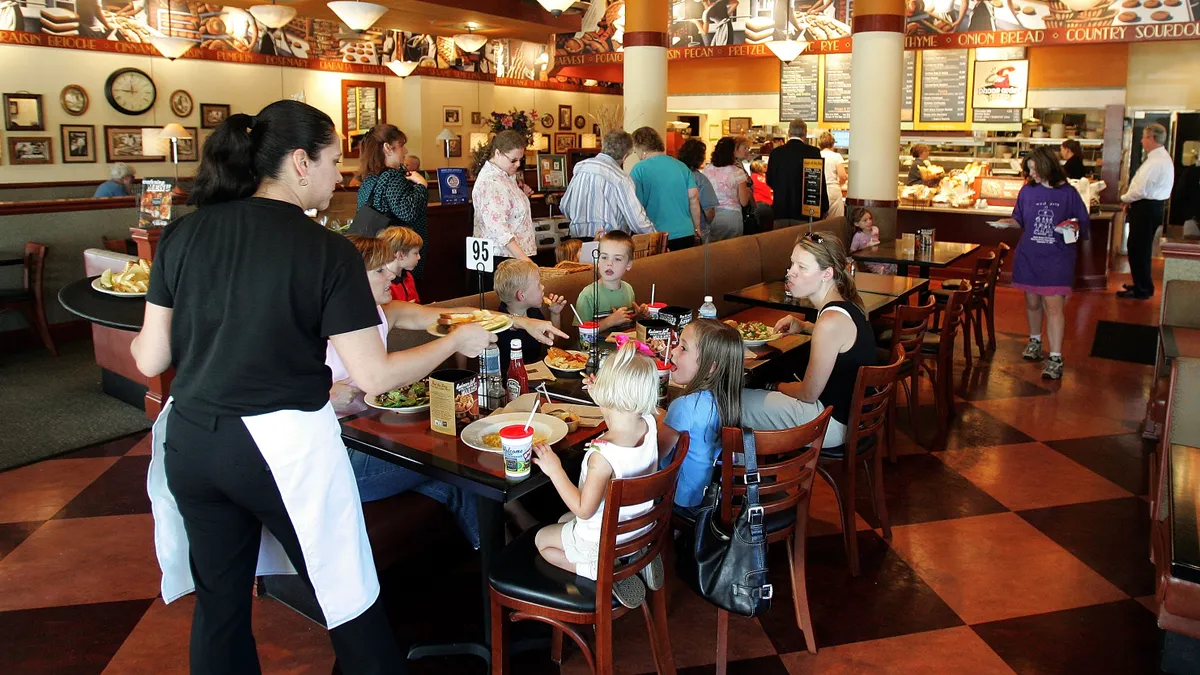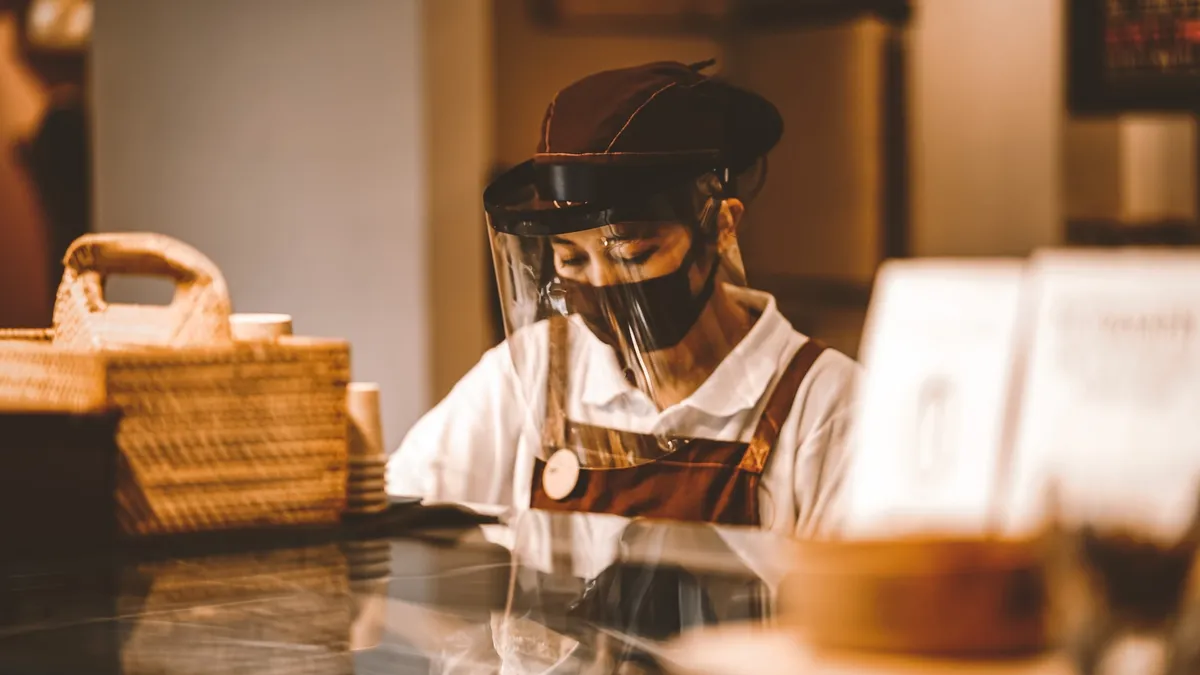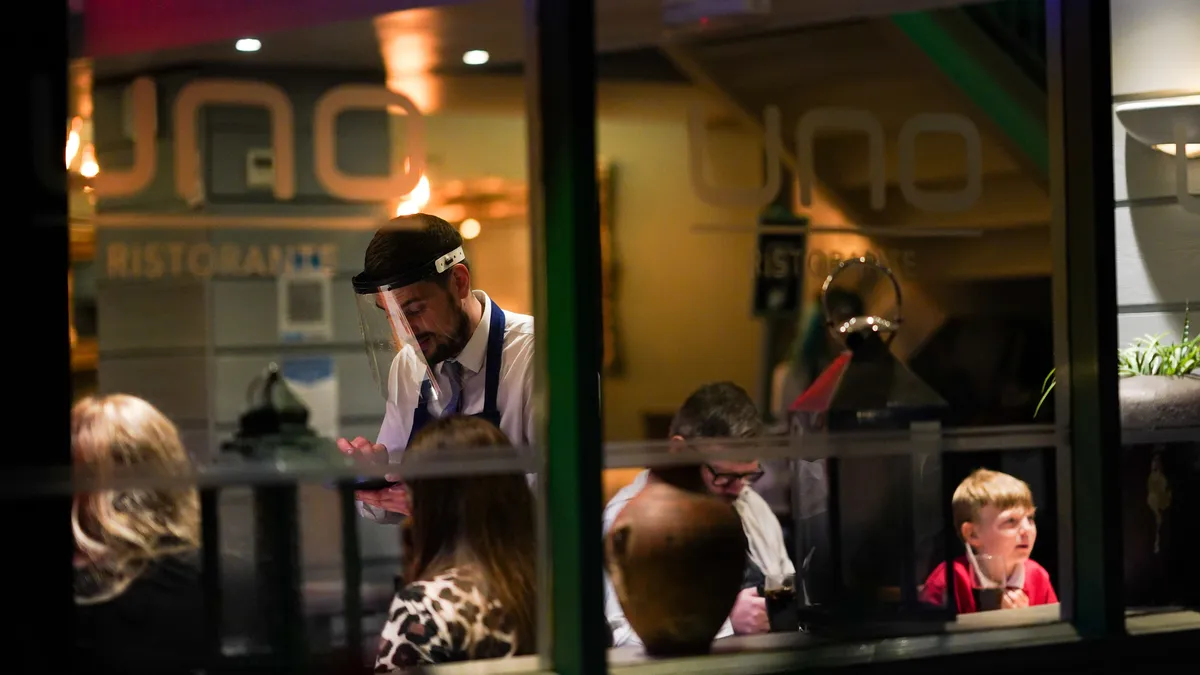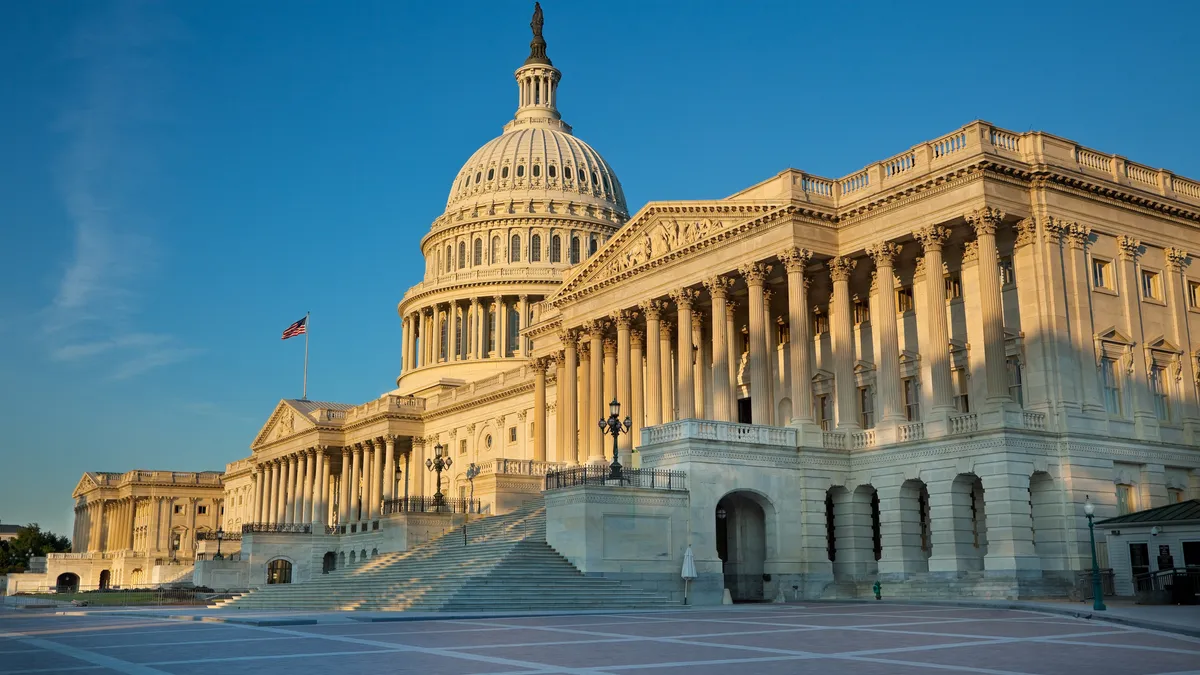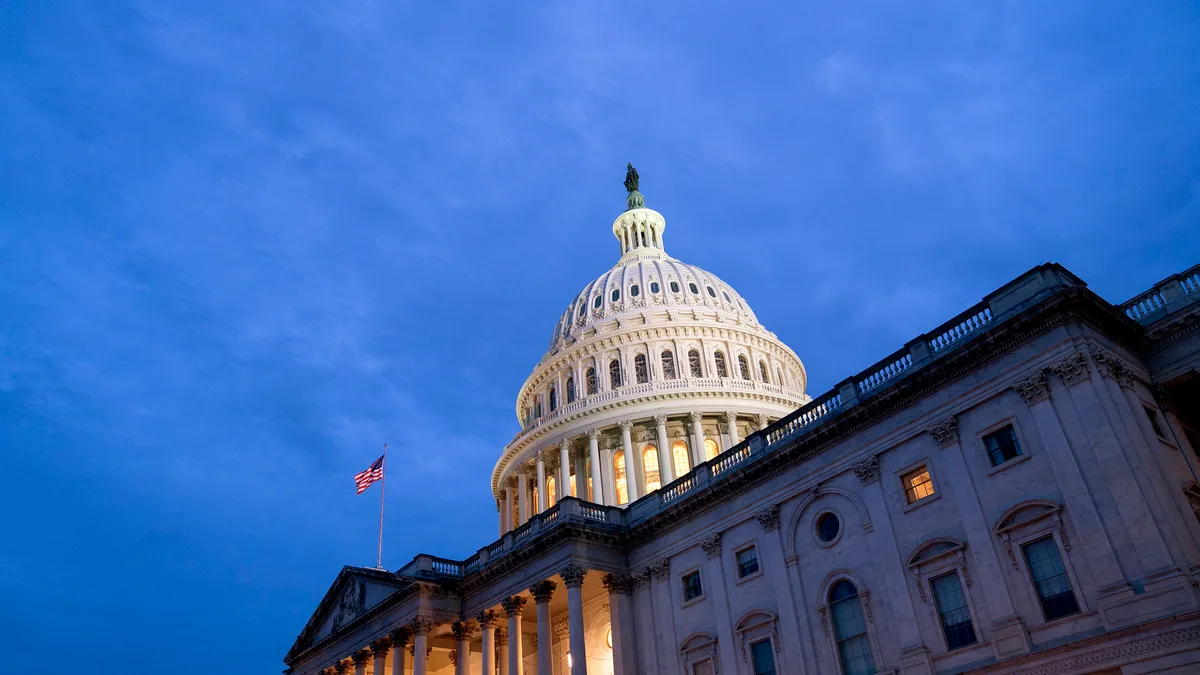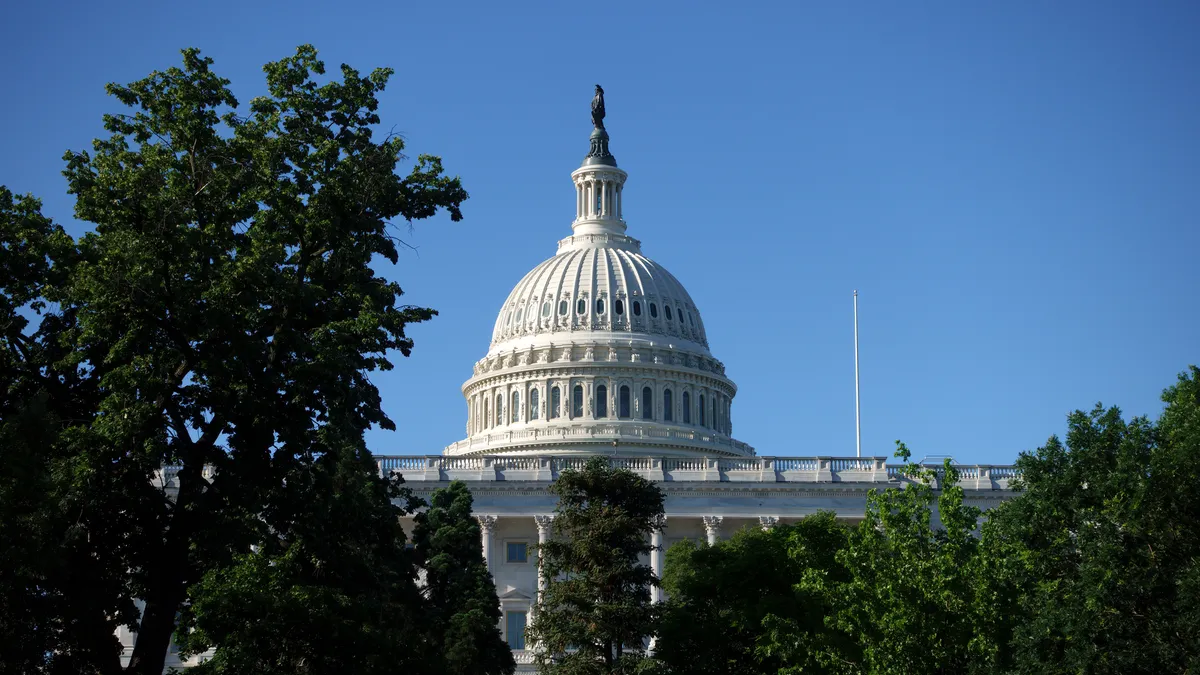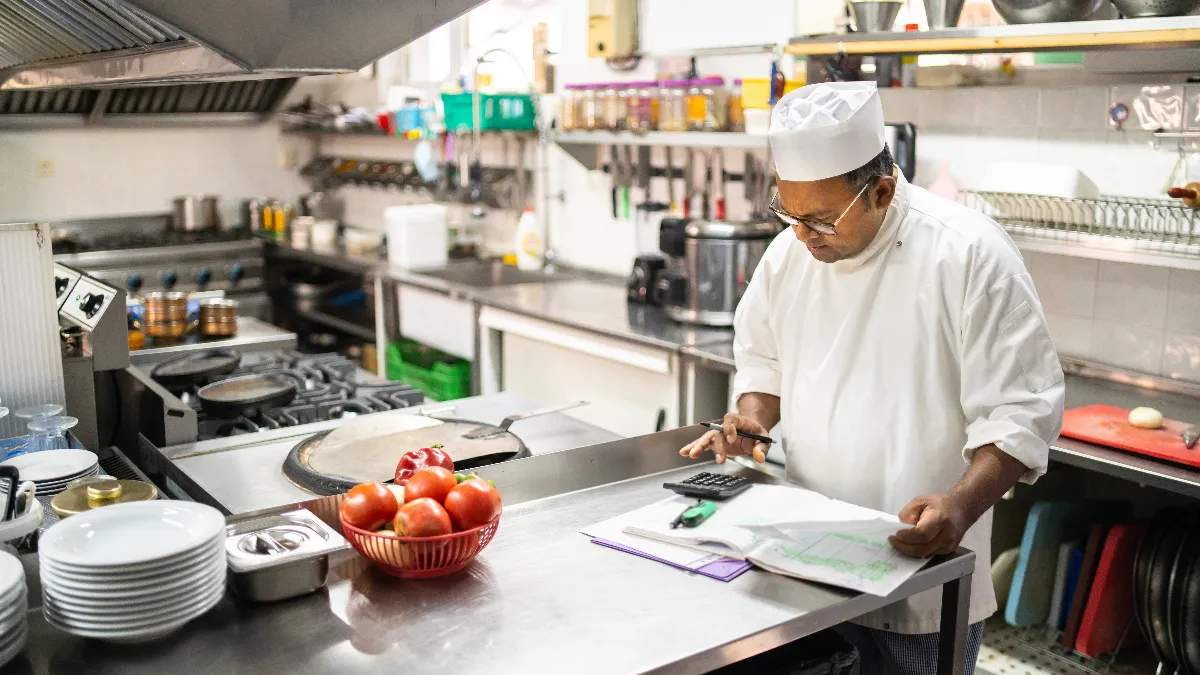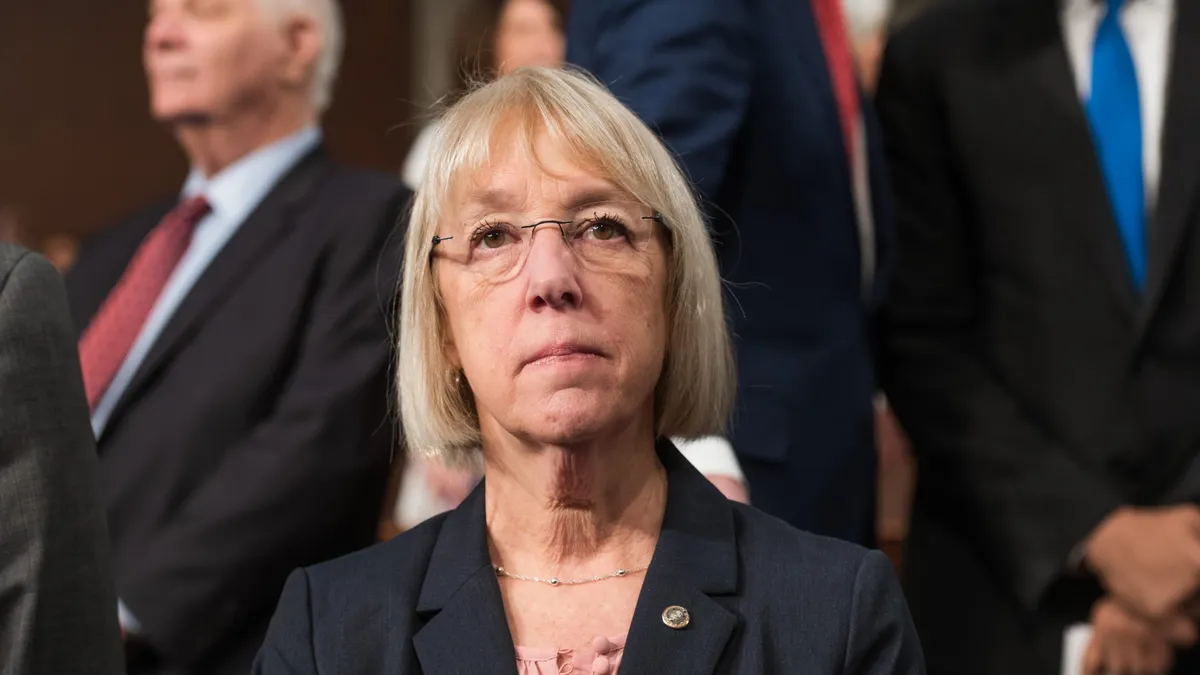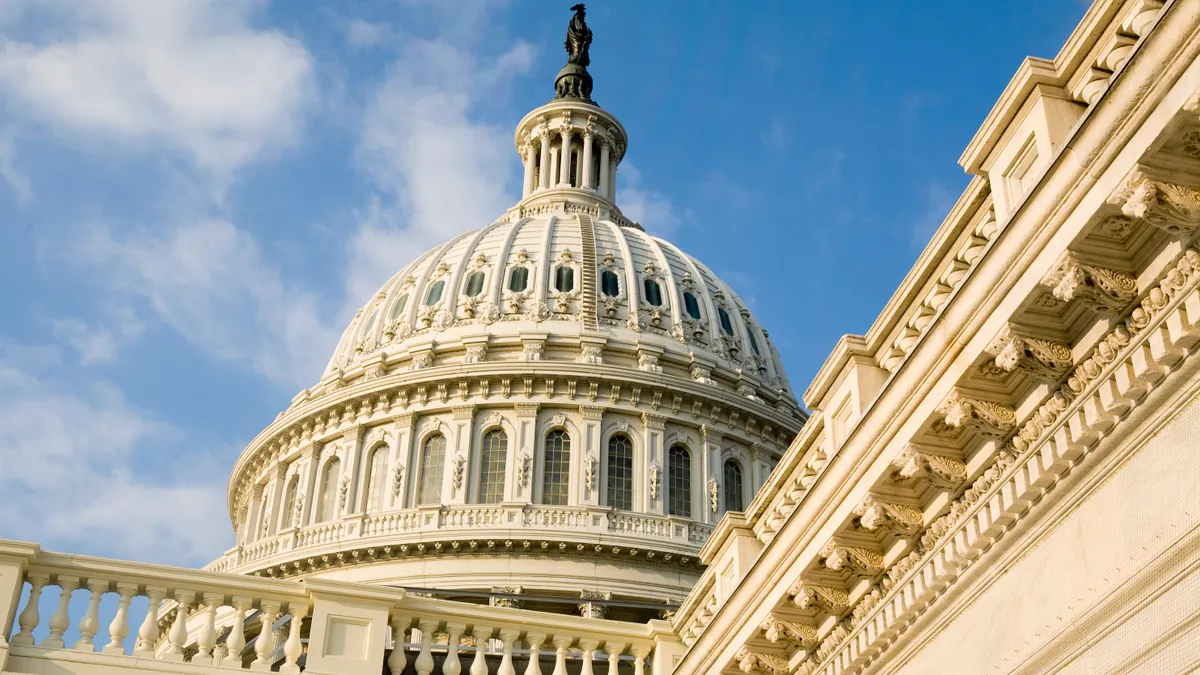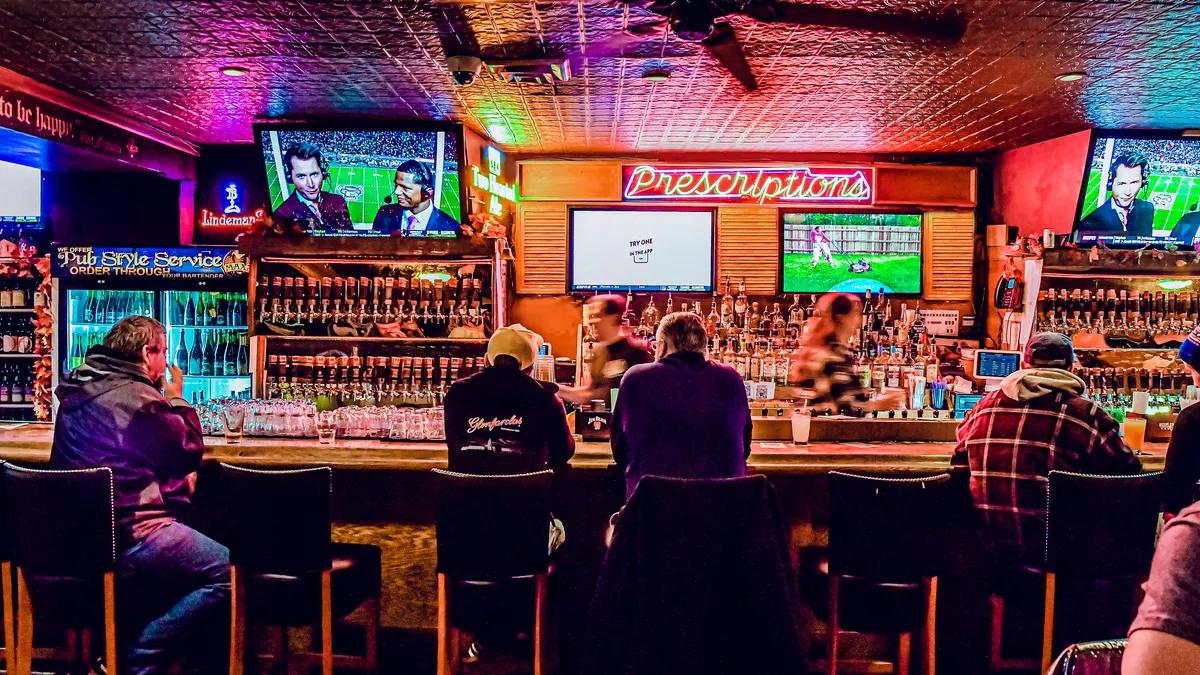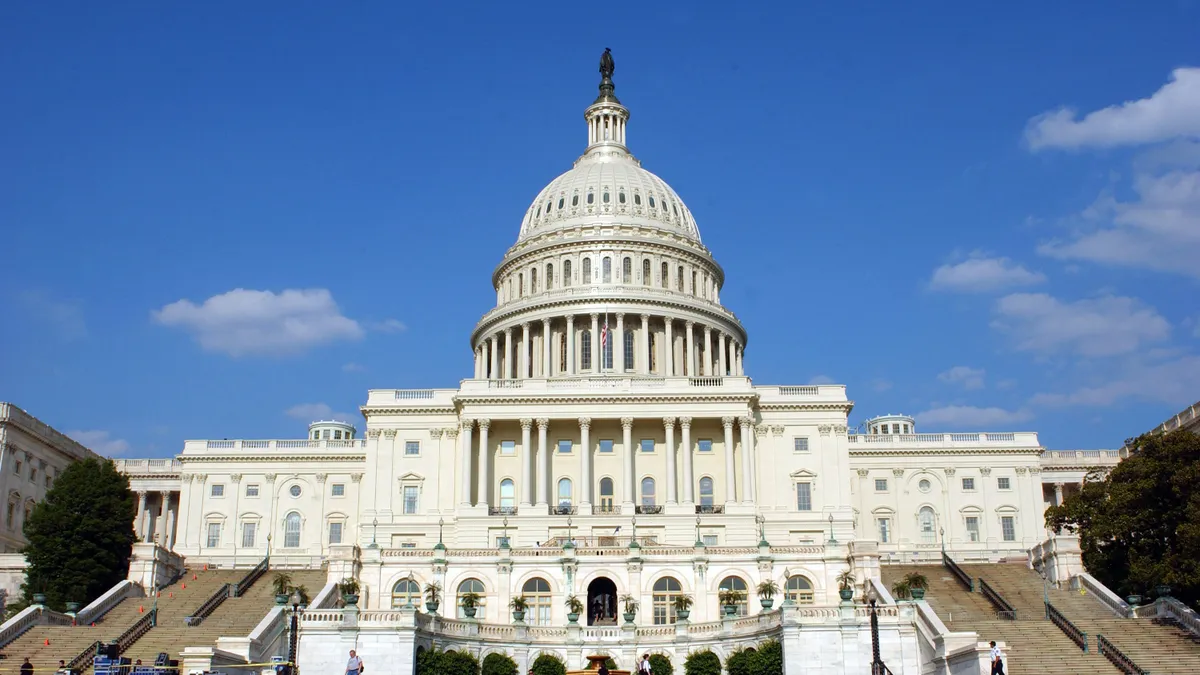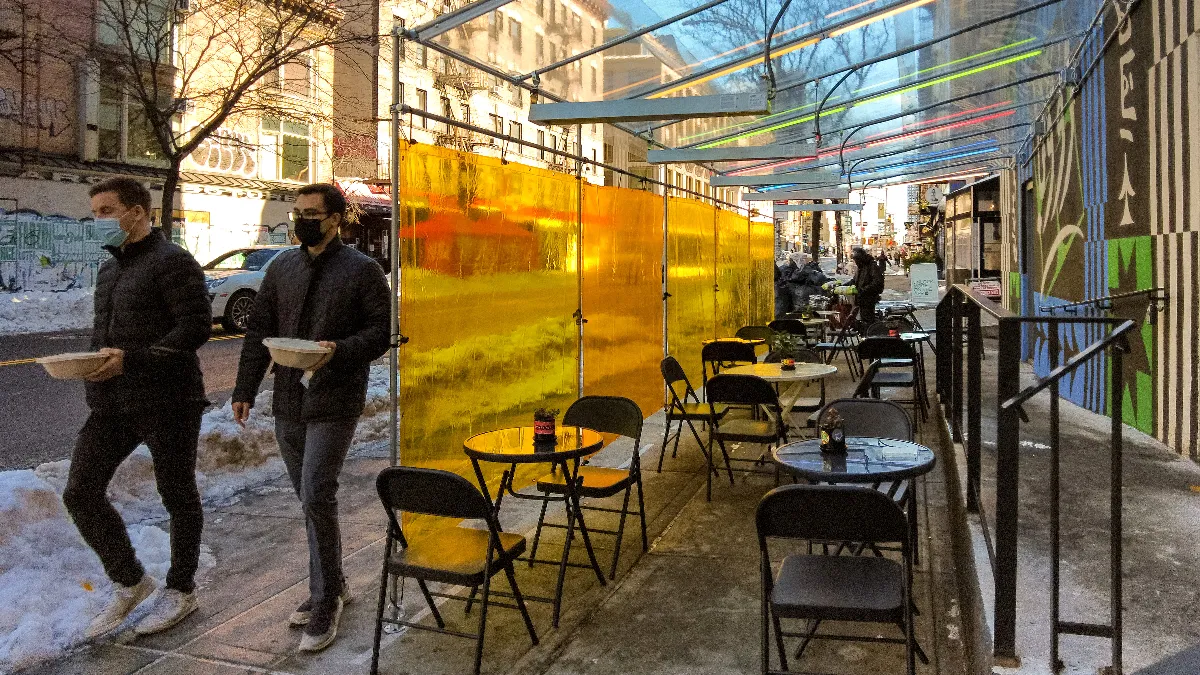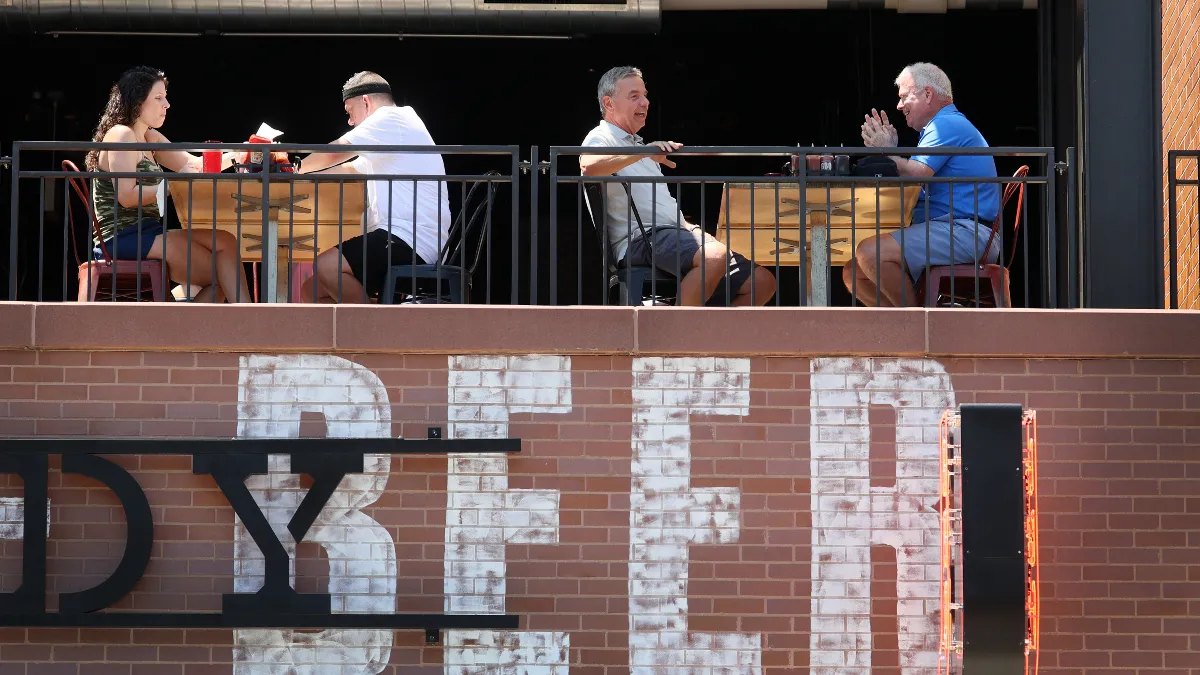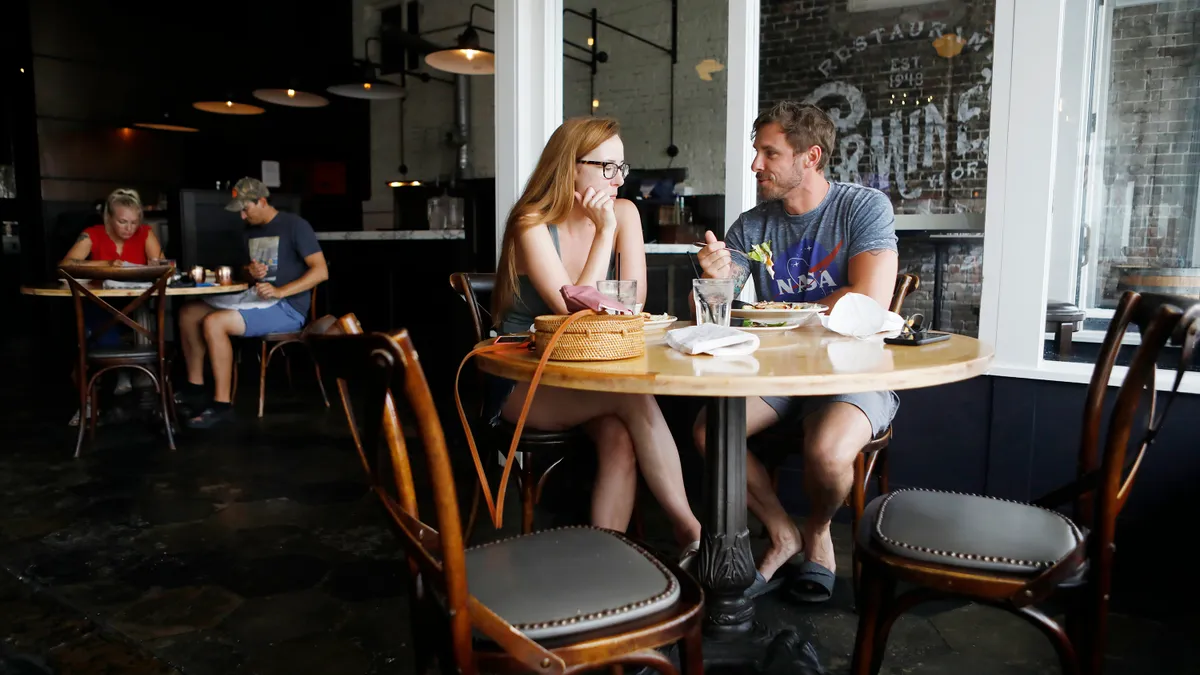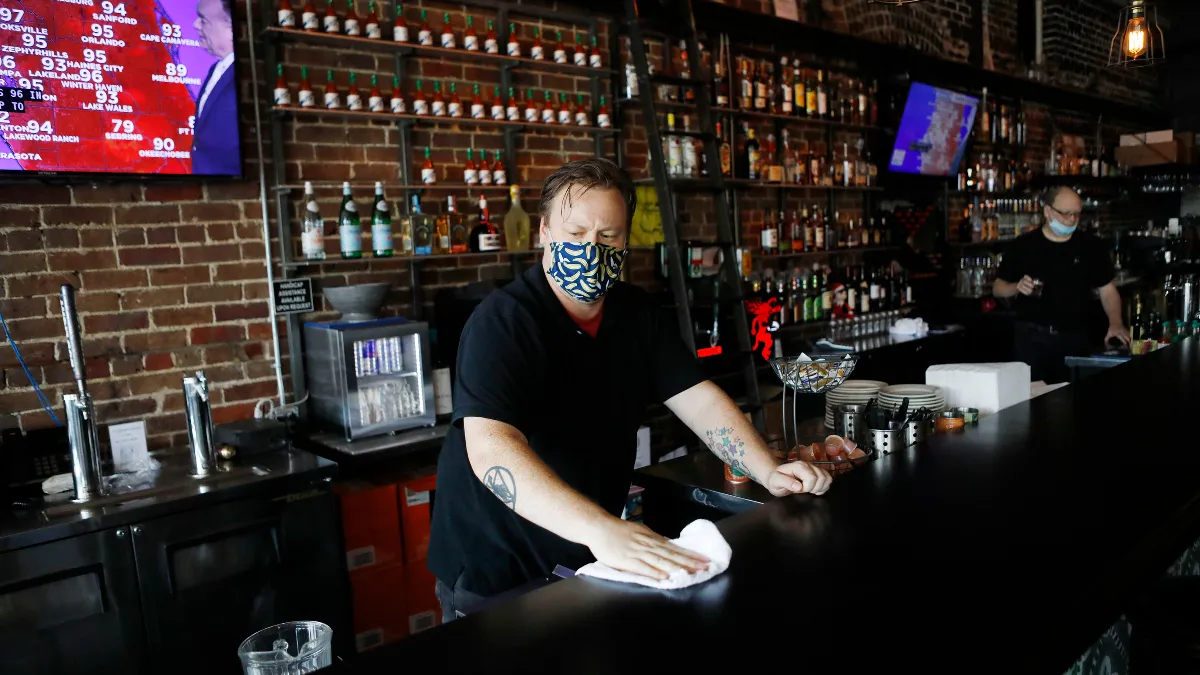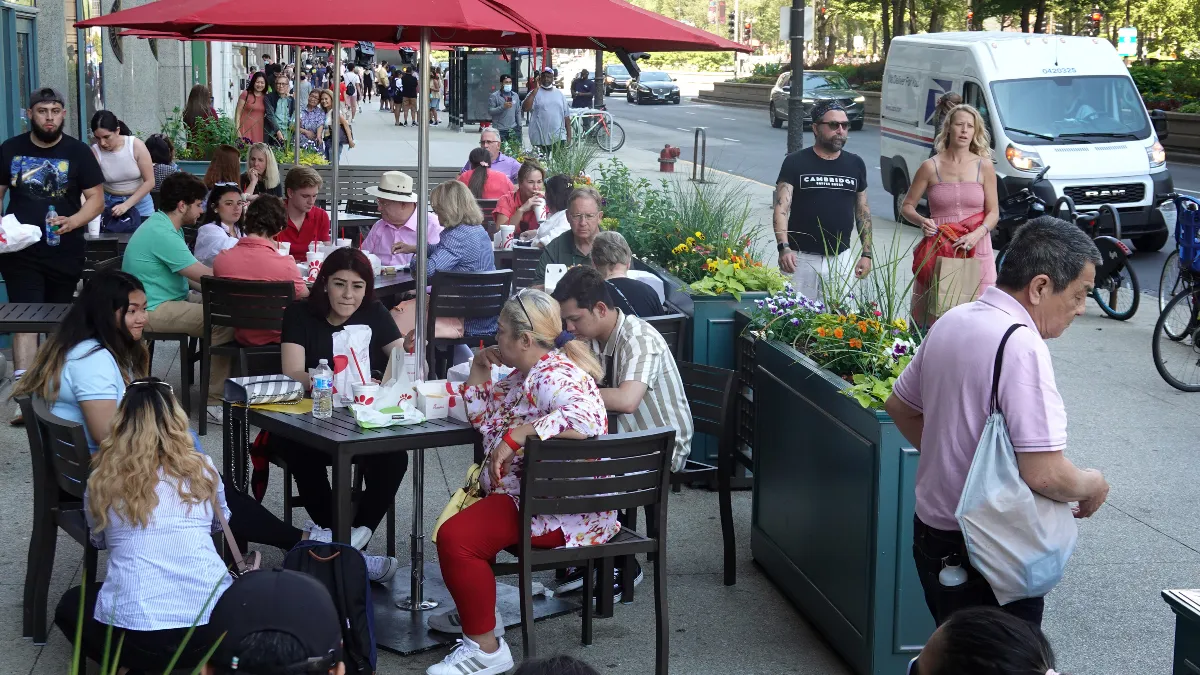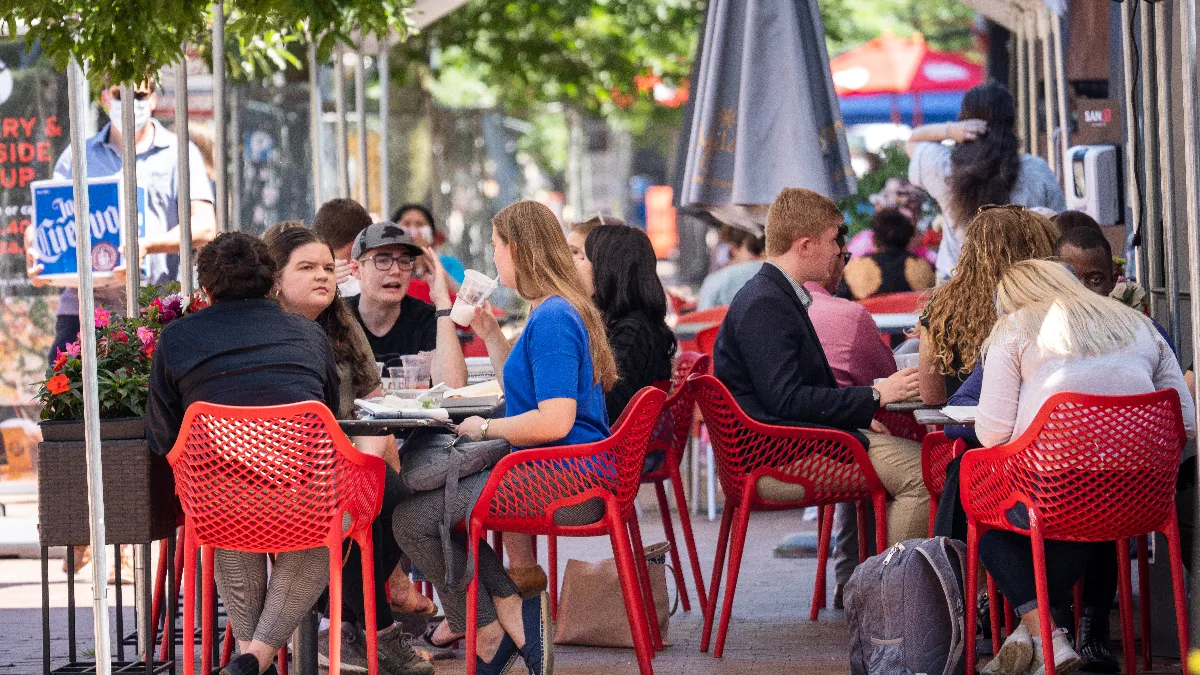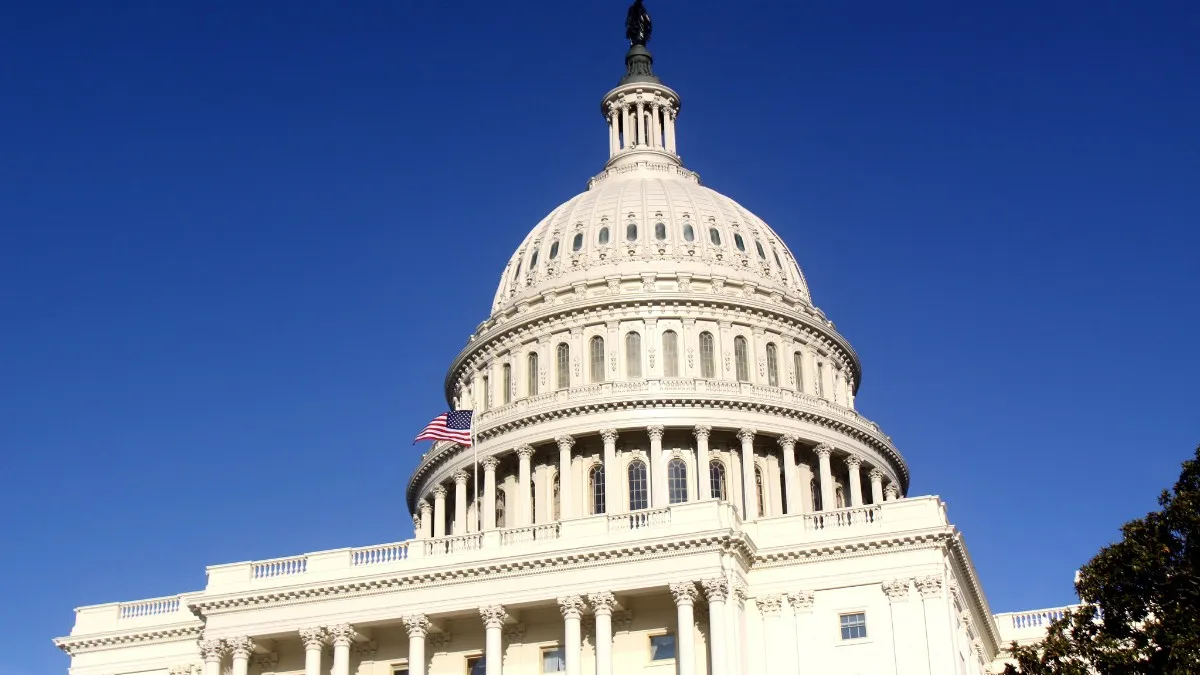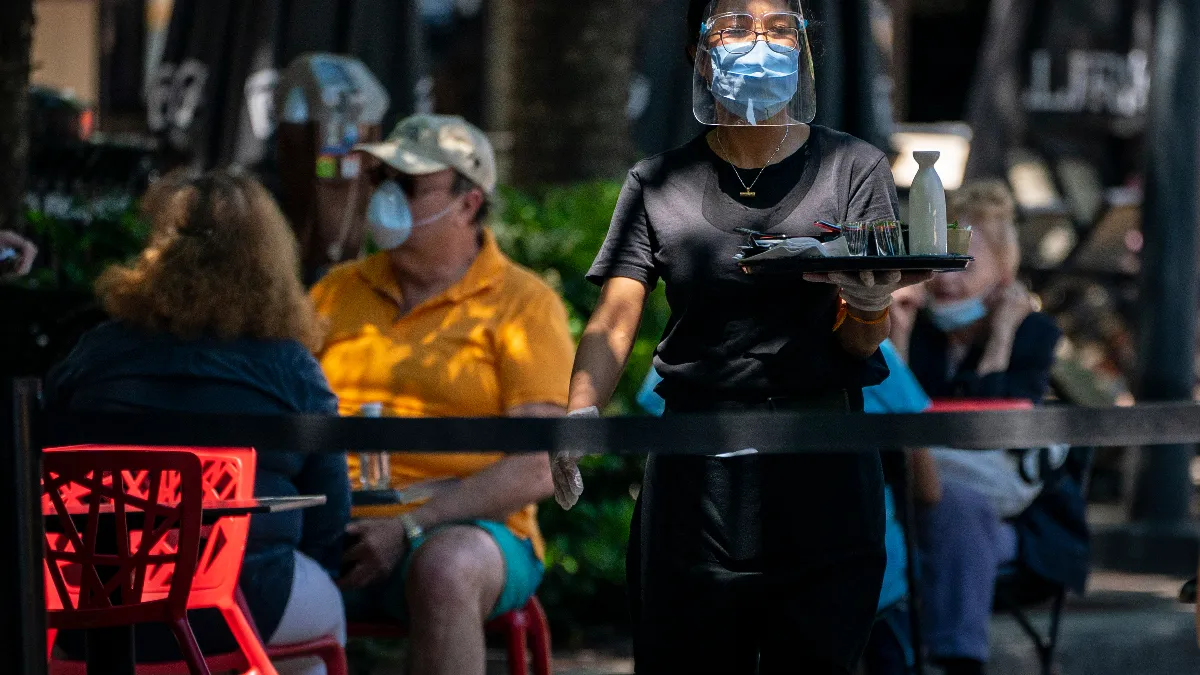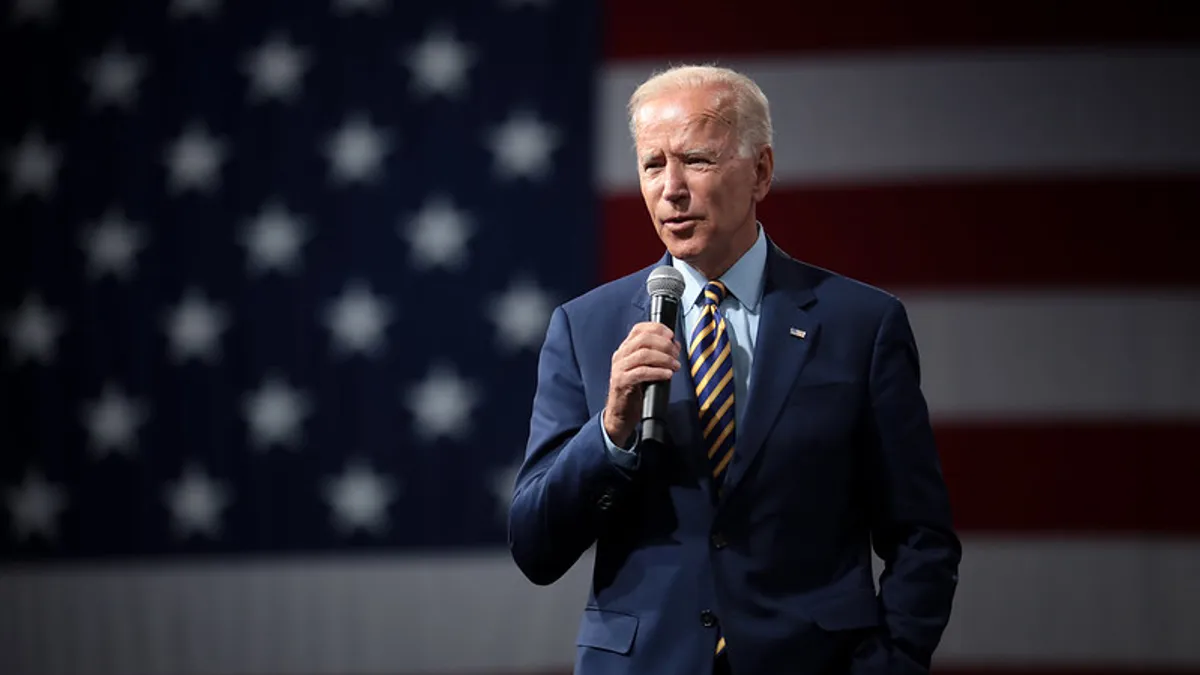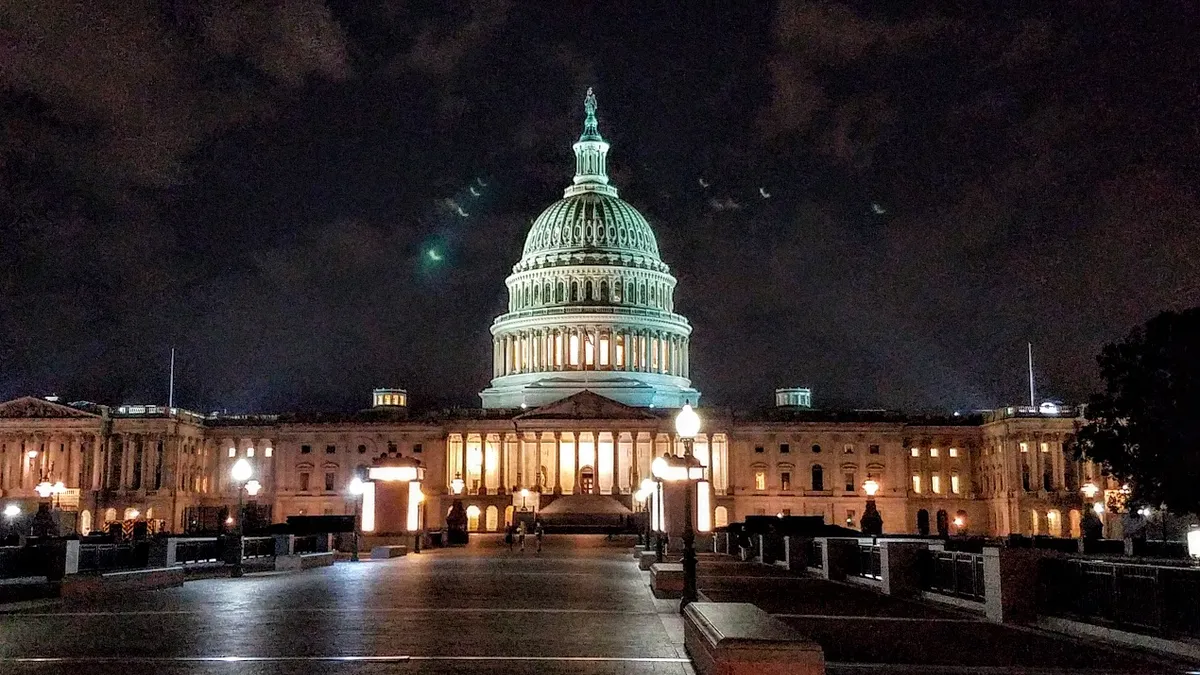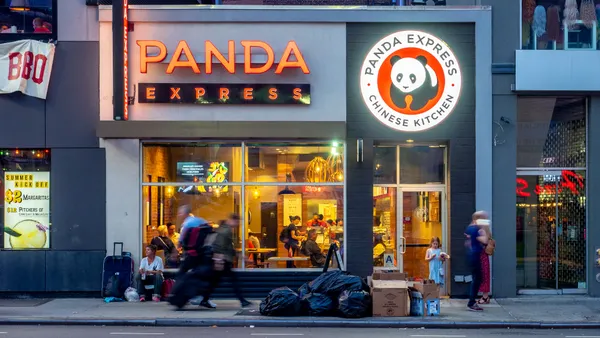Dive Brief:
- As the Restaurant Revitalization Fund runs dry, the National Restaurant Association called on governors, mayors and state legislators Wednesday to establish a state-based restaurant grant fund.
- These recommendations are part of the association's 12-step "State and Local Blueprint for Rebuilding," which also recommends protecting businesses from tax burdens, offering recruitment and retention bonuses, permanently expanding outdoor dining and making off-premises alcohol sales permanent, according to a press release.
- The Small Business Association closed the Restaurant Revitalization Fund portal on May 24, just three weeks after opening for applications. The fund received over 303,000 applications totaling more than $69 billion in requested funds, far exceeding the $28.6 billion allotted by the grant program.
Dive Insight:
NRA's call for states to bridge the support gap left behind by RRF's early closure reflects the restaurant industry's desperation to kickstart a recovery. The "vast majority of independent" establishments are still struggling, Erika Polmar, executive director of the Independent Restaurant Coalition, said in a statement.
"The impact of fifteen months of lost revenues won't go away overnight," she said.
Some states are already answering the call. The association's blueprint was created two weeks after California Governor Gavin Newsom proposed an additional $1.5 billion in financial aid be given to Golden State restaurants and other small businesses in need, for example. The proposal comes as California experiences a budget surplus of $76 billion, according to Restaurant Business, and raises the state's total for small business grants to $4 billion.
California's $4 billion allocation would make it the largest small business grant program in the country, Newsom said. It's far from the only such program, however. New York passed its executive budget in March that includes $25 million for its Restaurant Resiliency Program, as well as a $35 million Restaurant Return to Work credit. Oregon will use the $28 million in surplus from its commercial rent relief program to go toward small business grants.
Grant programs have been a mainstay throughout the pandemic, offered by both government entities and restaurant-adjacent companies to help keep operators afloat. Chicago, for example, offered a grant program in November for independent restaurants forced to close their dine-in operations early in the pandemic, while the state of Illinois provided $220 million in business interruption grants. Montgomery County, Maryland, is considering allocating about $3.83 million in grants to go toward restaurants, food trucks, catering business, wineries and breweries.
Grubhub teamed up with the Restaurant Strong Fund in May to offer $2 million in grants to eligible independent restaurants in select cities. The two entities also partnered last year for a $2 million Restaurant Winterization Grant program. DoorDash launched a number of support initiatives for restaurants over the past year, and funds a grant program for the nonprofit organization RE:Her, which awards funds to female restaurateurs and chefs. Heather Sperling, a recipient of that grant, told the Los Angeles Times called the federal RRF "incredibly oversubscribed."
"I am personally waiting with bated breath to see if we end up getting our [federal] grant, but really have no expectations for it. With these smaller, local grants, frankly, every dollar helps," Sperling told the publication.
Though restaurant capacity limits are back to normal in many markets, and 50% of the adult U.S. population is now fully vaccinated, several experts have cautioned that restaurants likely won't see a full recovery until 2022. Technomic predicted in November that this could take even longer for some operators, estimating full-service recovery won't come until 2025.


